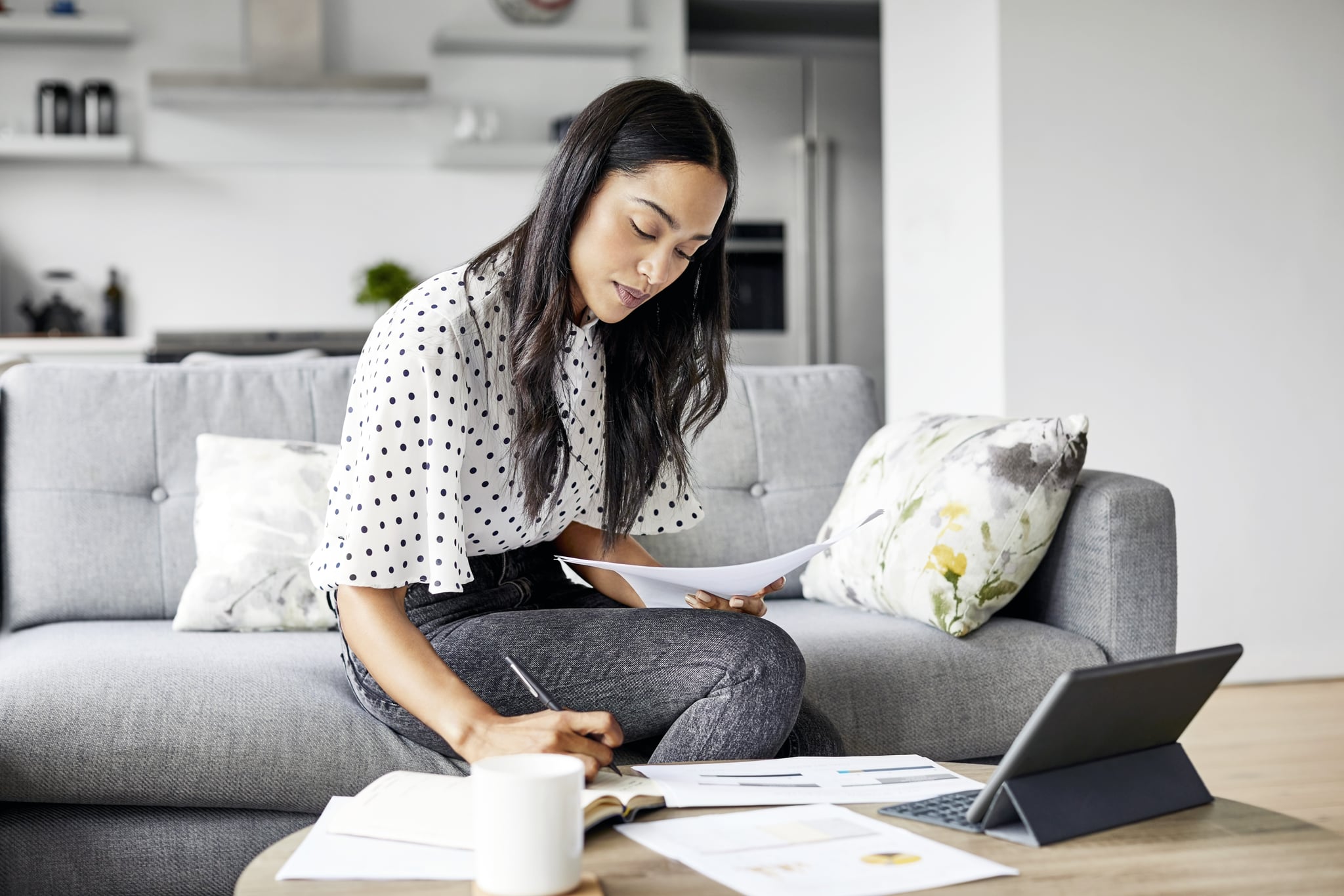I Used a Time Tracking App For a Week and Learned So Much
I Used a Time Tracking App Every Day For a Week, and It Changed How I Look at My Schedule

I was recently sitting at my desk in my bedroom, drinking a tall glass of ice water, when it dawned on me: it's been nearly a year since the COVID-19 pandemic hit the US. As I looked around the same room I've spent most of my days in, my first thought was, "Where does the time go?," followed up with the more nerve-wracking question, "What have I even been doing?"
While I don't think productivity should be everyone's ultimate goal, especially after the trying year so many of us have experienced, I've always liked feeling organised and on top of things. I get a sense of control from schedules and to-do lists, and they've become a form of self-care when I'm stressed. However, I'd been feeling overwhelmed and unorganised, and even my usual methods of structure weren't giving me the comfort I craved.
As I looked back at the past few months, I had no tangible grasp on where I'd been putting any of my energy. So, I decided to track my time for a week. I looked at broader categories first, like work, chores, and free time, later dividing them into specific tasks. I used the ATracker Time Tracker app, then at the end of each day, I put the data into an Excel sheet. While it was a little cumbersome at first, I found it important for me to actually see how I was using my time. Here's what I learned.
The Affects of Social Media
After a week of detailing what I did and how long it took, I had a much clearer picture of the hours in my day. First, I realised I was getting way too distracted, particularly while trying to accomplish work-related tasks. Things that should have taken only an hour or so were taking twice as long due to midtask "breaks" I'd take on my phone. I knew I wasn't immune to a mini Instagram scroll, but I didn't realise just how much time was wasted for a "quick" peek at the internet.
I Was Trying to Do to Much
However, even without social media interruptions, my biggest breakthrough from the week was that I tried to squeeze too much into my day. I used to get frustrated when I didn't accomplish everything I planned to do in a day, only leading to further stress. After tracking my time, I realised there was no realistic way to get everything done that I wanted without carving into what should have been hours for relaxation. My feelings of being overwhelmed and disorganisation even with a schedule started to make sense — my time felt like it was disappearing because I wasn't taking any for myself.
Final Thoughts
After tracking everything I did for a week, I was able to put the data I collected to good use. I've started leaving my phone in another room while I'm sitting at my desk to ensure I'm no longer tempted to touch it. After completing an assignment, I'll go catch up for five or so minutes. I've also started to plan my days much more strategically. By knowing how long it takes to do different tasks, I can more easily schedule eight hours of work tasks and one or two hours of chores nightly. The rest of the day I leave up in the air for whatever sounds good in the moment.
Having performed this experiment, I've regained the sense of control I felt like I'd lost. While there are still days where my plans have to be rearranged, or things don't go as expected, I know that overall I'm in a much better place than I was before. With an unknown future in front of many of us in 2021, there's great comfort in knowing my actions are intentional, thoughtful, and for me.
I plan to track my week once every few months as my life and responsibilities shift. While the data may change over the years, I have a feeling the comfort I achieve through it will stand the literal test of time.

